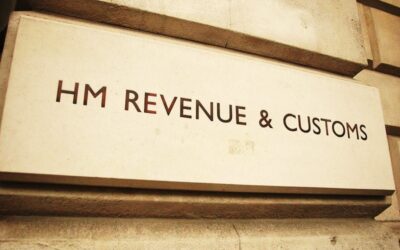The news that Amazon’s sales in the UK have ballooned over the last year have sparked the traditional headlines about Amazon’s tax bill (or lack of it).
This article looks to tease out some of the complex issues that arise from Amazon’s tax structure in the UK.
There is no doubt that Amazon has engaged in tax avoidance in Europe and the UK. Its structure, with a European hub in Luxembourg and satellite companies in the UK and other markets, was originally designed to exploit Luxembourg’s low VAT rate on books and other tax benefits.1 The way that the company divided profits between the UK and Luxembourg (with very little profit being declared in the UK) was based on the fiction that Amazon’s European companies were separate entities operating independently of each other.2
Much of this changed in 2015. Ahead of the UK’s introduction of a “diverted profits tax” which was designed to attack structures such this, Amazon established a UK “branch” of its main European HQ in Luxembourg.3
Its UK company, Amazon UK Services, which delivers goods on behalf of its Luxembourg parent, continues to operate, making a small amount of profit and paying a little corporation tax each year. However, the branch structure means that the company would also start reporting the sales made to UK customers from Luxembourg to HMRC and pay corporation tax on those profits.
So was that the end of the story with regards to Amazon’s corporation tax in the UK? No.
The branch structure means that Amazon does not publish any public accounts that detail the sales and profits it makes from UK customers or the taxes paid on them. All that is there is the company’s Luxembourg accounts, which show that as a whole, the company had no net tax liability and instead receives tax credits.4 It is possible that there was some corporation tax paid in the UK, which was offset elsewhere, but we just don’t know.
Amazon’s global accounts state that the Luxembourg entity did make a profit in 2020 as a whole, but that this was was offset by deferred tax assets.
Deferred tax assets are often the result of losses a company has made in previous years that it can offset against profits made today or in the future. Interestingly, the company also said that it still believes that its earnings in Luxembourg are uncertain, and as such, has written off some of their deferred tax assets on the basis that it will be unlikely to generate enough profit to offset previous losses against future profits.5
So whilst business across the world is booming (and has been booming for years), and the company is recording its highest ever profits, the accountants appear to believe that its European operations may continue to be loss making (or at least not make much profit) for a significant time to come.
For a company that was built partly on tax avoidance all of this is hardly reassuring, and Amazon’s attempts to obfuscate the issue raises even more concern.
Specifically, Amazon publish what they call their annual economic impact in the UK.6 This attempt at assuaging criticism of the company’s historic tax dodging seeks to set out the company’s total contribution to the UK economy, including the total amount of taxes it pays. This includes direct taxes the company pays, like corporation tax, as well as taxes it pays on behalf of consumers, such as VAT. The company states that in 2019 it paid £293m in direct taxes.
The problem with this is that the figure for direct taxes includes Employer’s National Insurance, which is a large bill for a significant employer like Amazon and will dwarf any corporation tax liability they have. The comparisons of this figure that some media outlets have made with other UK retailers’ corporation tax bills are grossly misleading.
Looking at Amazon’s global accounts, it must be said that the company does state that it pays taxes overseas. The latest annual report for 2020 published on February 3rd shows that the company had a current tax liability of close to $1bn outside the United States on profits of $4bn.7 However, although this tax rate of around 25% is more than the UK’s statutory tax rate, there is no indication whatsoever as to where this is paid, it might all be paid on Amazon’s operations in Asia or anywhere else. We just don’t know.
The UK government could easily rectify this lacuna. Every major multinational needs to report their economic activity, including their profits and taxes on a country by country basis. This report is then given to tax authorities on a confidential basis.
In 2016 MPs voted to give the power to ministers to compel the publication of these reports (for all major companies, not to single out any individual one). However, the government has yet to take up the offer.8
If the government were to do this, or Amazon were to publish their country-by-country report themselves, this would go a long way to establishing the reality of Amazon’s tax position in the UK and other jurisdictions around the world.
Two final things worth noting. Amazon’s published figures for how much profit it makes outside of the United States may well be significantly deflated by royalty payments paid by its overseas operations to the US.
Amazon’s latest corporate accounts show an adjustment in their tax liability against the US headline corporation tax rate of $372 for Foreign income deduction.9 This is the Foreign-Derived Intangible Income (FDII) provisions of the US tax code which gives US based corporations a discount of 7.75 per cent on royalty income on intellectual property they bring in from overseas. This suggests that Amazon’s international operations sent back almost $5bn in royalties from overseas, vastly more than the total profit they made outside the US.
Secondly, Amazon’s global accounts also show that the company received $639m in tax credits.10 These appear to be primarily related to US government subsidies on research and development. The use of tax credits to help subsidise things like research and development has become increasingly popular with governments around the world in recent years. As we have previously pointed out in our work on the creative industry tax credits in the UK, by design, much of these credits end up subsidising very large profitable corporations. It seems that the US is no different in this regard.
Our Director discussed some of the issues raised in this blog on Times Radio on 04 February 2021.
Photo by Christian Wiediger on Unsplash
1 David Pegg, From Seattle to Luxembourg: how tax schemes shaped Amazon, The Guardian, 25 April 2018, https://www.theguardian.com/technology/2018/apr/25/from-seattle-to-luxembourg-how-tax-schemes-shaped-amazon
2 Clair Quentin, Risk-Mining the Public Exchequer, Journal of Tax Administration Vo. 3, No 2 (2017), http://jota.website/article/view/142
3 Simon Bowers, Amazon to begin paying corporation tax on UK retail sales, The Guardian, 23 May 2015 https://www.theguardian.com/technology/2015/may/23/amazon-to-begin-paying-corporation-tax-on-uk-retail-sales
4 Mark Sweney, Amazon given €294m in tax credits as European revenues jump to €32bn, The Guardian, 21 April 2020, https://www.theguardian.com/technology/2020/apr/21/amazon-given-294m-in-tax-credits-as-european-revenues-jump-to-32bn
5 Amazon 10-K 2020, p.63 available from: https://d18rn0p25nwr6d.cloudfront.net/CIK-0001018724/336d8745-ea82-40a5-9acc-1a89df23d0f3.pdf
6 Dayone Blog, 2019:Amazon’s Economic Impact in the UK, https://blog.aboutamazon.co.uk/jobs-and-investment/2019-amazons-economic-impact-in-the-uk
7 Amazon Inc 2020 10-K p.62
8 Out-Law News, UK MPs back power to make multinationals’ country-by-country tax reporting public, https://www.pinsentmasons.com/out-law/news/uk-mps-back-power-to-make-multinationals-country-by-country-tax-reporting-public
9 Amazon Inc 2020 10-K p.62
10 Amazon Inc 2020 10-K p.63



